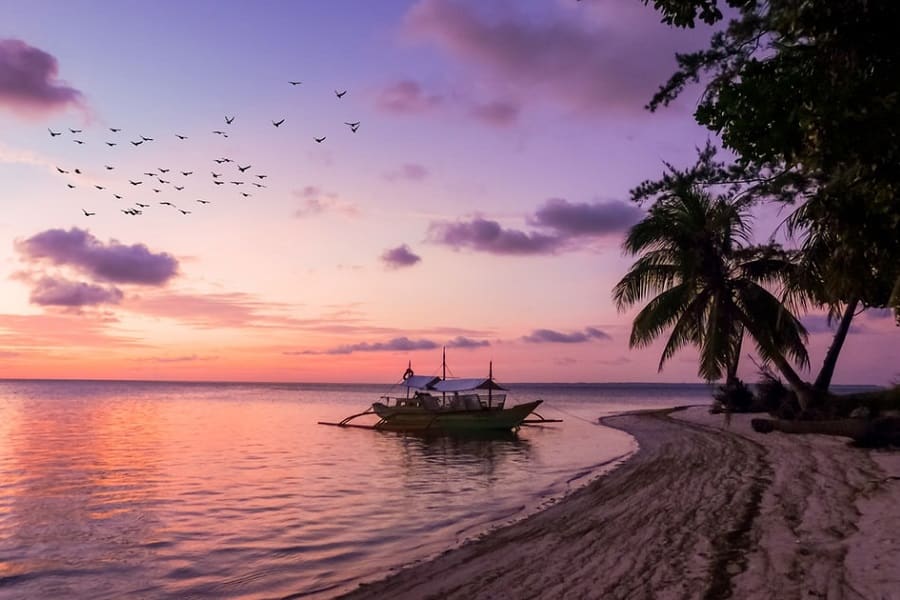
Feature
Island Books
A.L. Nelson
After the third major snowstorm of the winter, most people are ready to leave for a vacation on a remote tropical island to warm themselves. It would serve as an escape from a life that is ordinary, even boring, an endless stream of days bundled in coats, avoiding the weather whenever possible. Waiting for summer while shoveling the sidewalk, trying not to slip and fall.
Perhaps it’s time to begin planning that dream vacation.
A dream vacation spot is often accompanied by a luxury hotel and staff catering to a guest’s every need. Beautiful, wide sandy beaches, warm breezes, nothing to do but relax. Kick back in a lounge chair under an umbrella and listen to the sound of the ocean while sipping a Mai Tai.
Tempting, isn’t it? But then again, be careful what you wish for. That’s usually the point when a scream erupts because someone has discovered a dead body, or a tsunami is rolling in, or the villagers have suddenly vanished.
Maybe a book about an island adventure will do the trick instead. It’s certainly a safer form of escape.
The Lure of Islands
What’s not to like? There’s an island for nearly every taste, both in reality and in books. Some are flat as a pancake, while others soar to massive heights. Then there are those that land somewhere in between. Some are rocky, some sandy, and some have dense, almost impenetrable vegetation. Exotic birds with colorful plumage to compete with the beauty of the tropical flowers around them completes the visual ideal.
The splendor draws the viewer, or the reader, in. And once in, there’s always more to discover. Less often noticed is the occasional volcano, unless it towers over the rest of the landscape, or if it happens to be rumbling or releasing steam. Ominous fins piercing the surface of the ocean just off the beach aren’t attention-getters either unless someone decides to go for a swim.
Perfect for Mystery and Suspense
Usually, island-based novels pull readers in with a setting that is either ominous or inviting, with a dose of mystery or suspense. The island is a contained environment, like an experiment. And people are the unwitting subjects.
Islands can be fodder for suspense and mystery, both of which are expected merely from the isolation factor. Those that require a boat, or some means of air transport before stepping foot on their shores are often the source of the most life and death drama. The plane will be forced to land, or the boat will sink. Even if the island is close enough to the mainland to be reached by bridge, the sense of isolation isn’t eliminated. Isolation can also conjure up an element of horror.
If the island has a structure, it’s a massive, creepy old house, a scary place, where either someone’s been murdered or they’re about to be, unless they are picked off one by one – it depends on the number of people invited to the island or stranded there. Those islands rarely if ever have visitors. If there’s a boat around, chances are it’ll sink, stop working, or disappear, just when it’s needed most. There is a mystery to be solved, and sometimes that mystery is simply finding a way off the island.
Key Ingredients in Island Tales
Even though the amount of real estate is limited, islands are ripe for a good chase scene (on foot, of course), and lend themselves to a multitude of hiding places. Those prove useful for running from pillaging pirates, a mad scientist, or hungry dinosaurs. There are usually plenty of reasons for the main characters to be on the run.
This brings us to how the characters arrived on the island in the first place. Occasionally, people are put off a ship onto an island for revenge or bad behavior, especially if pirates are involved. Many novels involve accidents, usually from a storm at sea, even hurricanes (known as cyclones in most parts of the world). As these events always seem unanticipated, there is a lack of preparation with food and fresh water. Not to mention fishing gear and a first aid kit. Nothing beyond the basics, and that’s if they are lucky.
Humans have certain requirements that must be met for the sake of survival. If there were nothing to sustain life, the castaways would only last a short time, depending on the circumstances, before perishing. Not much interest there unless rescue comes soon after the stranding.
Considering the requirements for sustenance, most novels with an island setting use a tropical locale when characters are to be cut off from the outside world. The land is usually lush with food-producing plants and at least one source of potable water. These are all necessities, considering that the boat that stranded them didn’t likely set sail loaded with an abundance of canned goods to last weeks, months, or even years. But they probably have a can opener on board. Who thinks to grab for that when the boat is going down? Not to mention the cans. But when stranded, people prove to be industrious, able to find or construct most anything needed, from shelter to tools.
Freshwater stereotypically comes in the form of a picturesque waterfall that drops into a tempting pool. Occasionally those pools are home to dangerous creatures, but obtaining water is worth the risk. Rest assured that at some point, someone will undoubtedly go into the ocean in search of seafood and invariably get into trouble while doing it.
Other necessities make a satisfying story. The island must be both deserted and remote. Where would the interest lie if those stranded can simply place a call or ask the natives for assistance, provided they aren’t murderous, cannibals, or monsters? Those marooned are alone and unable to swim to a neighboring island or the mainland for help. Nor does the island lie along major shipping channels or in an easily accessible tourist area.
The islands also tend to be on the small side. Isolation in combination with size makes them less likely to be inhabited and limits the number of people who can survive the shipwreck. In addition to the ocean, there may be a dangerous reef or unscalable cliffs to keep others away, essentially protecting inhabitants but not allowing them to leave easily.
Uncharted islands used to be the norm, but that’s rare now unless the books are set back in history, before modern technology. Speaking of technology, cellphones need something to lock onto for a signal to call for help, and power for charging the battery. More problems for our castaways to deal with. A lack of communication with the world beyond can prove challenging. Or even fatal. It adds to that mystery and suspense.
Some island symbols have shifted due to the modern-day. Pirates, for instance. The swashbuckling thieves with occasional redeeming qualities, heavily romanticized over time, have been replaced by the kind who have none. Today’s pirates tend to be murderous (though pirates hundreds of years ago were the same), without charisma. Time changes perspectives.
One fond ingredient has remained. There are still tales of the ever-popular buried treasure, where a map is marked with an X. And there’s always competition for the cache of wealth. It’s one that will probably never vanish or morph over time.
There are many similarities among island settings, many familiar tropes that are used, yet the stories written around them have enough differentiation to have kept readers happy for hundreds of years. And there are more to come, considering the ongoing popularity. They make a good beach read or an escape from long winters.
So, if someday you’re aboard a boat on stormy seas, taking on water, keep a sharp eye out for an island. Better to end up there with whatever awaits you than at the bottom of the ocean. Perhaps indulging in a book would be safer than taking that vacation after all. But then, that’s up to you.
About the Author
A.L. Nelson, AICP, is a certified [city] planner and author who has published five novels in the suspense and romantic suspense genres. Her latest novel, The Stranding, is romantic suspense in a tropical island setting.

More Suspenseful Features
Suspense Weapons
Unconventional Weapons in Suspense Fiction
On The Run Thrillers
A Sprint Through Mystery’s Finest
The Boogeymen of Suspense
Boogeymen as a staple of the suspense genre
Advertisement



